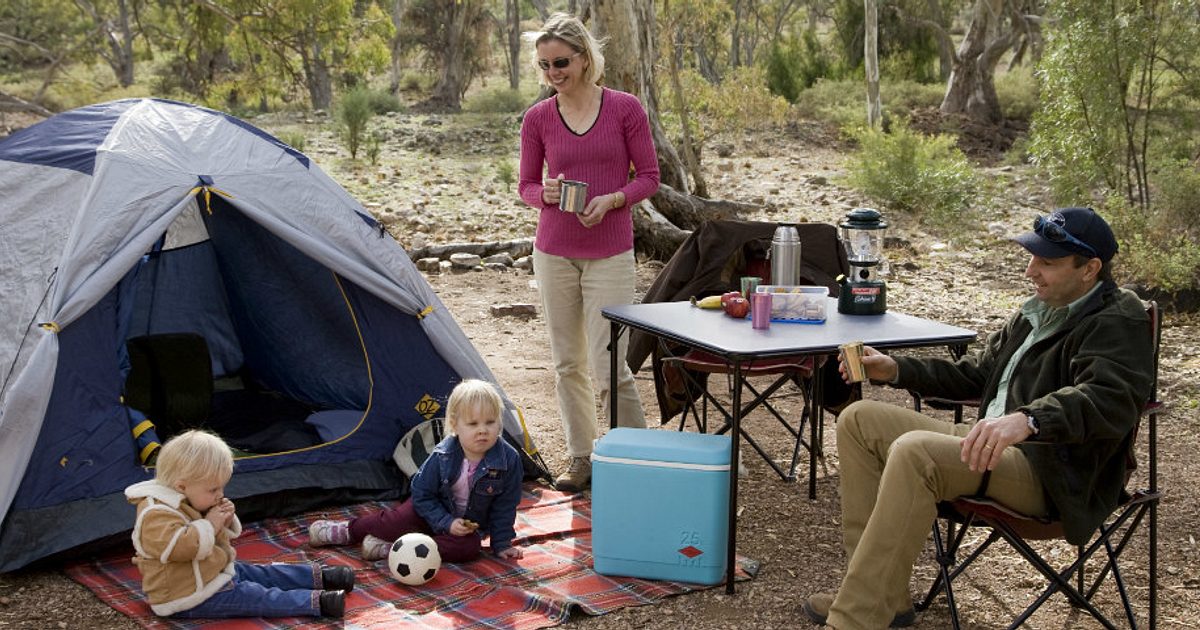
Camping in the wild can be an exhilarating and rejuvenating experience, allowing you to connect with nature and disconnect from the daily hustle and bustle. However, it’s crucial to prioritize your safety and security while exploring the great outdoors. By following a few essential tips, you can ensure a safer and more enjoyable camping adventure. Whether you’re a seasoned camper or a novice, these seven tips will help you enhance your safety and security while camping in the wild.
1. Research and Plan:
Before embarking on your camping trip, conduct thorough research about your chosen destination. Familiarize yourself with the area’s wildlife, weather conditions, terrain, and any potential hazards. Check for any travel advisories or restrictions and ensure you have the necessary permits. Plan your itinerary, including camping sites, hiking trails, and emergency exit routes, and inform someone reliable about your plans and expected return date.
2. Pack Appropriately:
Packing the right gear and supplies is vital for your safety and comfort in the wild. Start with the basics, such as a sturdy tent, a warm sleeping bag, and a reliable camping stove. Consider bringing essential safety items such as a first aid kit, a multipurpose tool, a flashlight or headlamp, extra batteries, and a fire extinguisher. Don’t forget to pack enough food, water, and appropriate clothing for the weather conditions.
3. Set Up Camp Wisely:
When selecting a campsite, prioritize safety and security. Look for a flat and elevated area away from rivers, flood zones, or areas prone to rockslides. Avoid setting up camp under dead or unstable trees and be mindful of potential falling branches. If camping near a water source, ensure it’s safe for drinking or carry a water filtration system. Keep your campsite clean and secure by properly storing food and disposing of waste to avoid attracting wildlife.
4. Practice Fire Safety:
Campfires can provide warmth, light, and a cozy atmosphere, but they also pose risks. Follow local regulations regarding campfire usage and always choose designated fire rings or pits whenever available. Clear the area around the fire pit of any dry grass, leaves, or debris that could ignite. Keep a bucket of water or a fire extinguisher nearby and never leave the fire unattended. Ensure the fire is completely extinguished before leaving the campsite or going to sleep.
5. Wildlife Awareness:
Respecting and coexisting with wildlife is crucial for both your safety and the well-being of the animals. Maintain a safe distance from wildlife and never approach or feed them. Learn about the specific wildlife species in the area and their habits. Properly store food and scented items in bear-resistant containers or hang them from a tree branch at least 10 feet above the ground and 4 feet away from the trunk. Make noise while hiking to alert animals of your presence and avoid surprising them. Security gun like 1911 Pistol is so necessary for security in wild.
6. Stay Weather Ready:
Weather conditions in the wilderness can change rapidly, so it’s essential to stay prepared. Check the weather forecast before your trip and monitor it throughout your camping adventure. Pack appropriate clothing layers to protect against cold, heat, rain, or wind. Always carry rain gear, extra clothing, and a hat for sun protection. Seek shelter immediately if you notice approaching storms, strong winds, or other severe weather conditions.
7. Personal Safety and Emergency Preparedness:
Prioritizing personal safety and being prepared for emergencies are essential aspects of camping in the wild. Carry a well-stocked first aid kit and know how to use it. Familiarize yourself with basic first aid techniques, such as treating cuts, burns, sprains, and insect bites. Learn essential survival skills, including navigation, signaling for help, and building emergency shelters.
Conclusion:
Enhancing your safety and security while camping in the wild requires a combination of preparedness, awareness, and responsible decision-making. By following the seven essential tips outlined in this article, you can minimize risks and ensure a safer and more enjoyable outdoor experience.
Remember to thoroughly research and plan your trip, pack appropriate gear and supplies, and select a campsite wisely. Practice fire safety, respect and coexist with wildlife, and stay vigilant about changing weather conditions. Prioritize personal safety by carrying a well-stocked first aid kit, acquiring basic survival skills, and informing someone trustworthy about your plans.
While immersing yourself in the wonders of nature, it’s crucial to respect the environment and leave no trace behind. Protecting the wilderness ensures its preservation for future campers to enjoy and guarantees the safety of both humans and wildlife.
By taking these essential precautions and adopting a responsible and mindful approach, you can enhance your safety and security during your camping adventures in the wild. Embrace the beauty of the outdoors, connect with nature, and create lasting memories while prioritizing your well-being.
